It’s always fun to travel with someone else or at least meet
up with friends, even if they’re friends you’ve never met before. Or met only once in your life so long ago you
hardly remember. It’s a long story, but I do know a few people in Belgium,
mostly the descendants of my mom’s friends.
Ann Vandenbrouke and several of her relatives have been Facebook friends
of mine for a few years now, so when she saw I was planning a trip to Belgium
she suggested meeting up. A day in together in Bruges worked out for us.
Her family connection is that her grandfather (Arthur) and
my aunt (Martha) through marriage were siblings. My mom stayed pretty close with Aunt Martha’s
relatives and considered them family even though there was no blood
relationship. Ann’s mother and father visited us once in the U.S. when I was about
4 or 5, and we also saw them in Belgium in 1985. I was 18 then and I think Ann was about 8 or
9. Ann’s Uncle (Constant) took us all
for a walk around town (Harelbeke) and Ann had a hard time making it over one
of the ditches on our route.
Ann is now very grown up, teaches at a university, married
to Jeroen, and with two boys aged 14 and 12 who all joined me for a day in
Bruges. They told me they had actually never been to Bruges together as a
family before, although each had individually on school friend trips or
work-related events. Our first order of business after meeting was heading to
the Belfry at its opening time to beat the crowds. Even at 9:30 A.M. climbing
366 stairs is an ordeal on a hot day but worth it for the views in the
sunshine. Our next adventure was a boat
ride on the canals, quite fun but in my opinion not the best vantage point for
seeing the sites because of the low vantage point. At least the movement and
proximity to the water cooled things down for half an hour or so. One interesting aspect is that Bruges canals
are only open to boats run by the five tour companies that operate there; no
house boats or private craft permitted as they are in Amsterdam or elsewhere in
Netherlands.
The family wanted to go to lunch at De Halve Maan Brewery
and then for a brewery tour. De Halve Maan (Half Moon) is one of two breweries
in the city and is known for several versions of Brugse Zot (Bruges Madman) and
Strafe Henrik (Strong Henry) beer lines, all pretty strong stuff but up to 11%
alcohol on the Strafe Henrik quadrupel.
I’ve been on several brewery tours before but this one was unique; they
have you climbing up and down staircases so steep they’re practically ladders
and into rooms so hot the 95* outdoor air felt refreshing.
I can see how the
tour is so highly recommended in the guidebooks, and it’s not just for the
included beer at the end of the tour.
After a big lunch, which for me was a platter of five
Flemish cheeses that I had to eat quickly before they became spreads, a long
afternoon walk was in order. We went to the Saint Anna quarter in the eastern
part of the old city, a quiet neighborhood of old houses, big churches, several
windmills and old city gates, and a few museums dedicated to specific subject
matter like Flemish ethnology, lace making, and the Flemish writer Guido
Gezelle. After all that walking in the
heat it was time for a another beer break….and then some ice cream for dinner.
I noticed there was a concert that evening on the Burg
Square in front of the Stadhuis. Ann and Jeroen were familiar with the band and
wanted to stay to see him. Het Zesde
Metaal (The Sixth Metal) is what’s known in Flemish as kleine konst (small
art), a genre that uses regional dialects and local subject matter as opposed
to an art of more universal appeal that most musicians aim for.
The band was preceded by a West Flemish rapper named Brihang
whose poetic lyrics I found to be quite bad. At least that’s true of what I
could understand of them. That I
couldn’t understand too much of either Het Zesde Metaal or Brihang is more of a
reflection of not being able to understand lyrics in live music than the
language; much of the time I can’t understand it when they’re singing in
English either.
I should explain the significance of West Flemish, the
dialect of West Flanders province. The dialect is the version of the language I
grew up with and is considered almost a separate language from Dutch/Flemish by
some linguists because it uses somewhat different grammatical rules, different
pronunciation, and many different words than dialects from other parts of
Belgium or Netherlands, so much so that television news in Belgium sometimes
provides subtitles when people interviewed are speaking in the West Flemish
dialect. But it’s the one I understand best.
We decided to call it a night around 11:00 while the show
was still on but the flashes of lightning in the sky were starting to look a
bit more ominous. I made it back to my
hostel in the nick of time before the heavens opened up, breaking the
month-long rainless period in the area, but Ann, Jeroen, and the boys got
drenched in the last few minutes of dash to their car. Overall it was a great day!

 Bruges, Flanders, Belgium
Bruges, Flanders, Belgium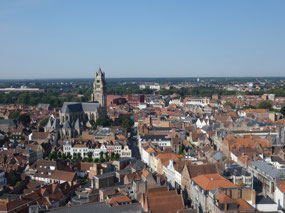
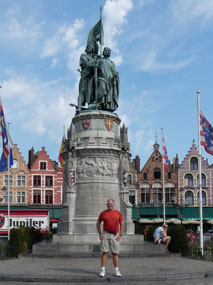
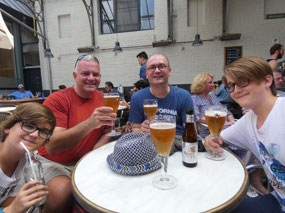
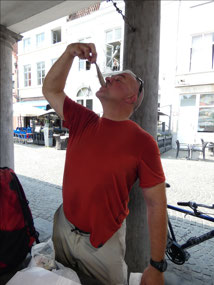

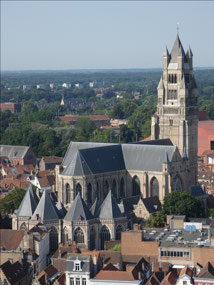
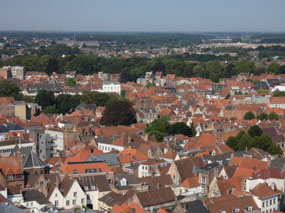
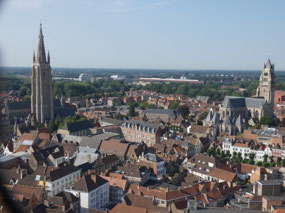
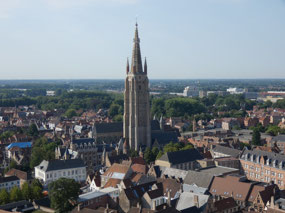
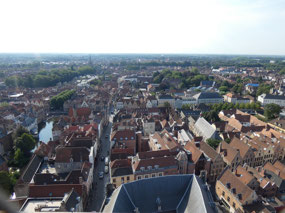
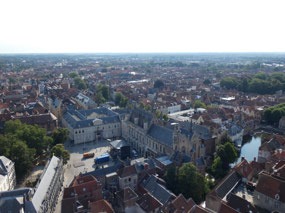
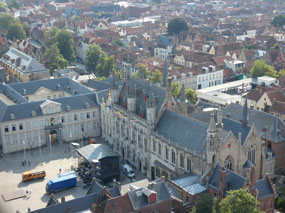
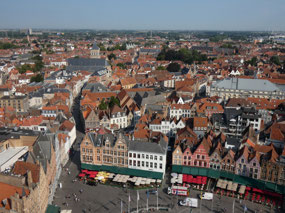
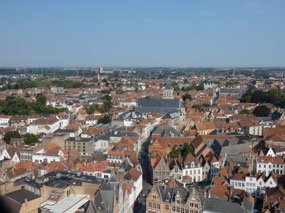
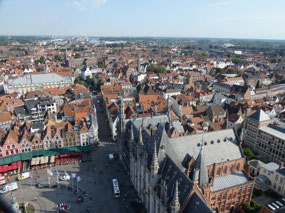
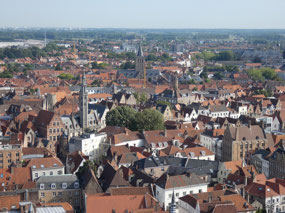
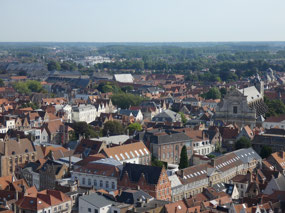
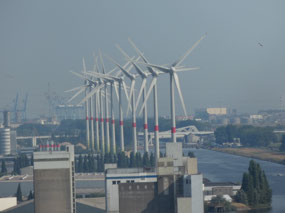
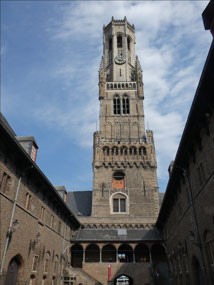
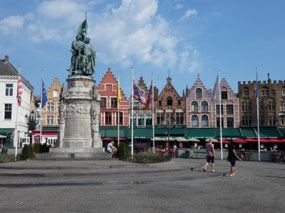
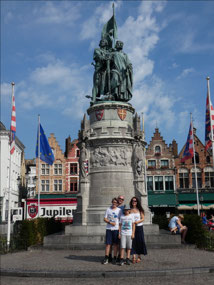
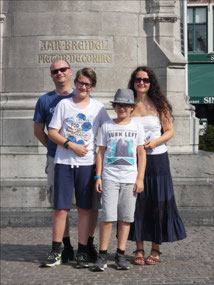
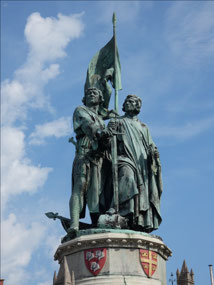
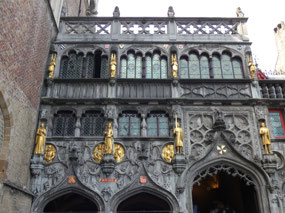
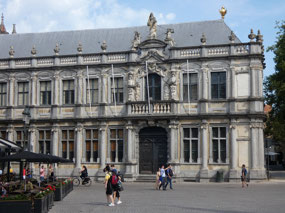
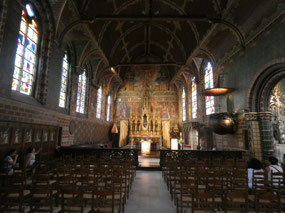
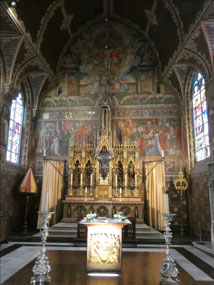
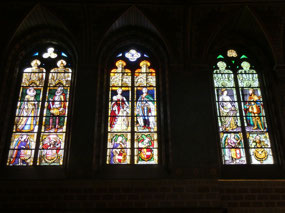
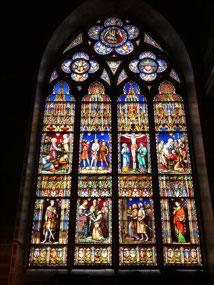
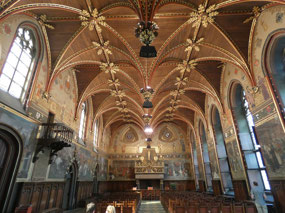
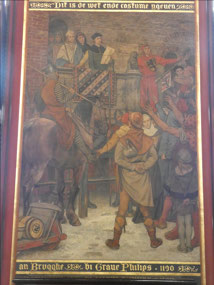
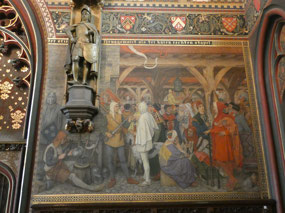
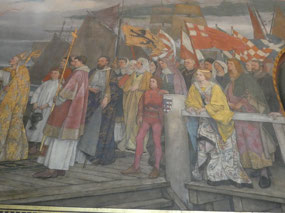
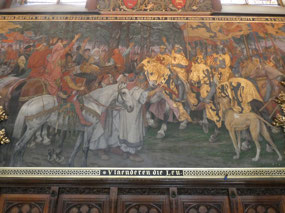
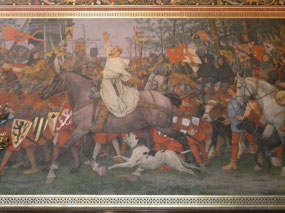
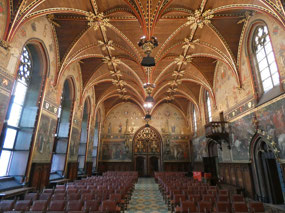
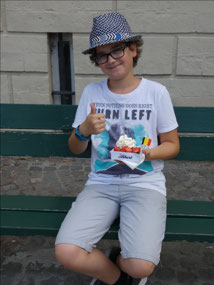
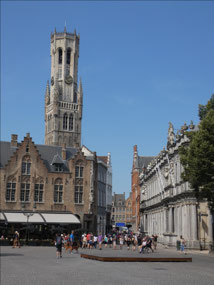
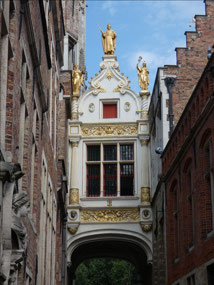
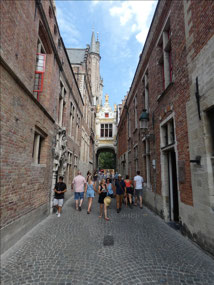
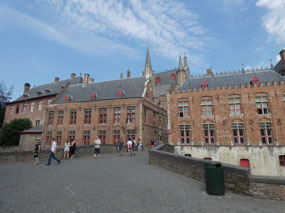
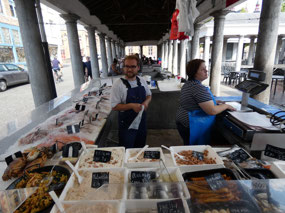
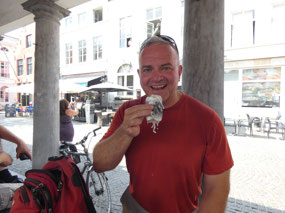
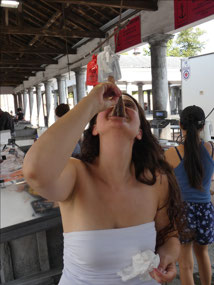
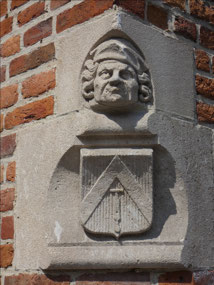
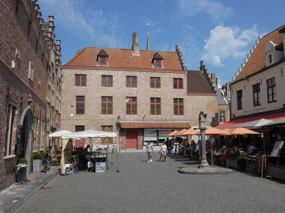
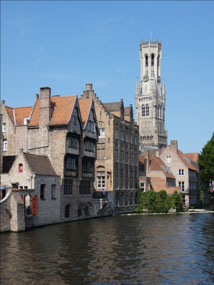
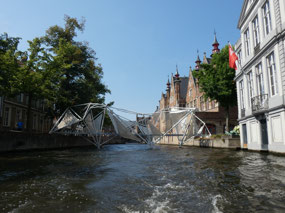
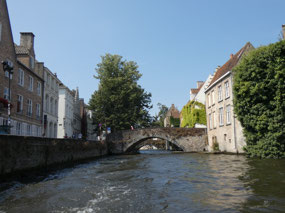
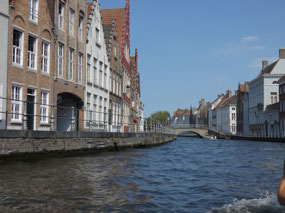
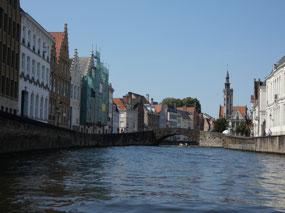
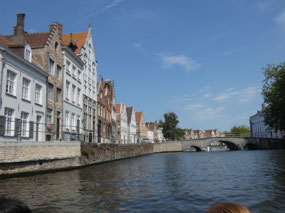
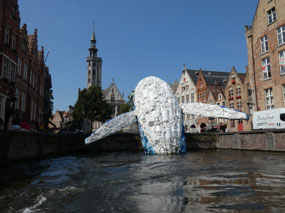
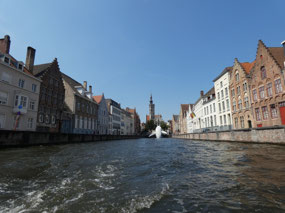
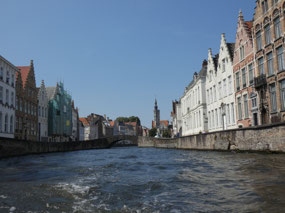
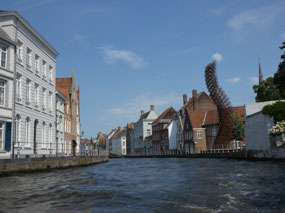
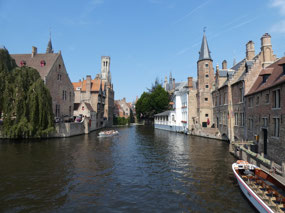
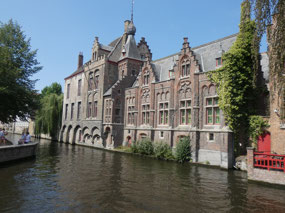
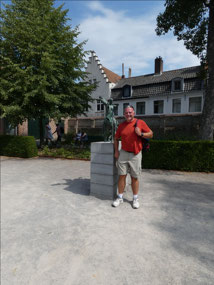
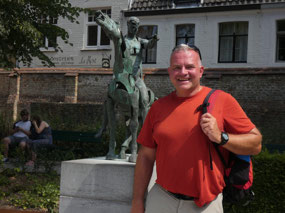
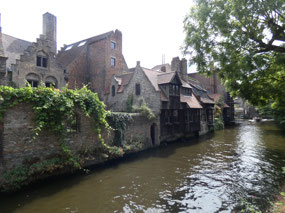
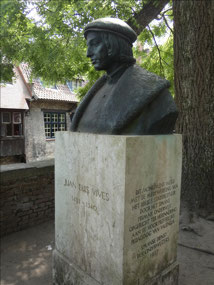
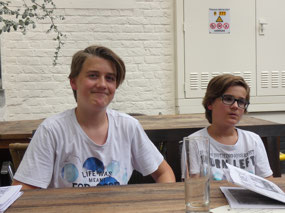
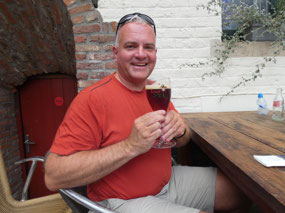
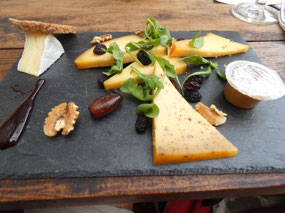
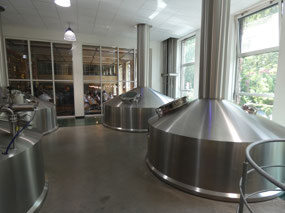
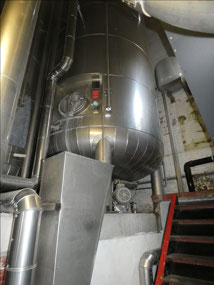
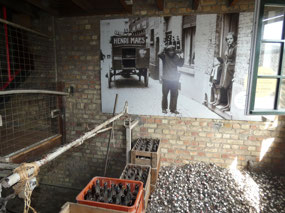
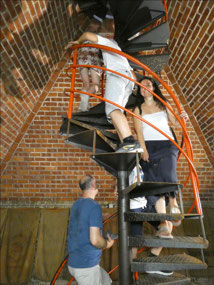
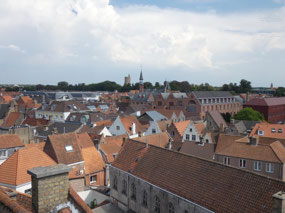
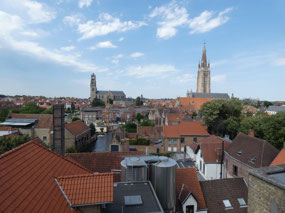
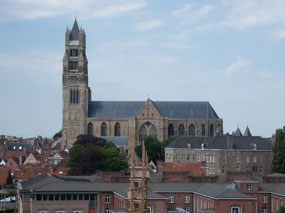
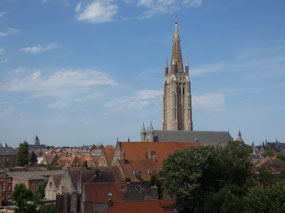
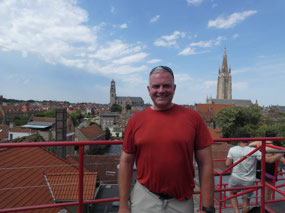
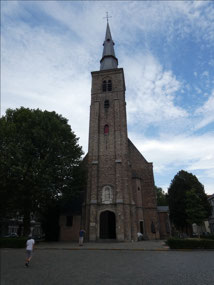
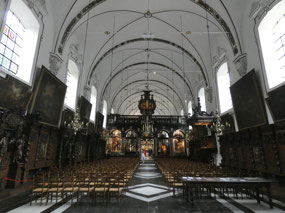
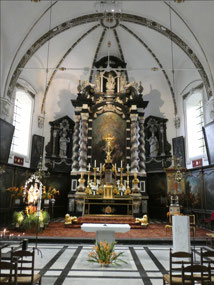
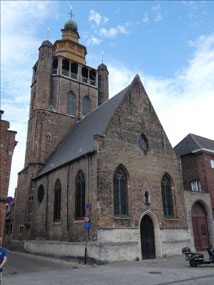
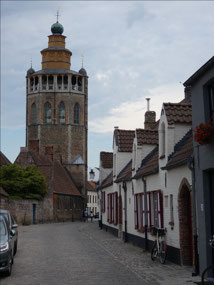
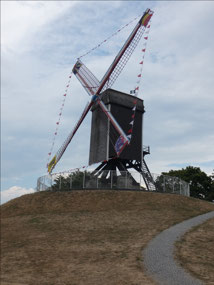
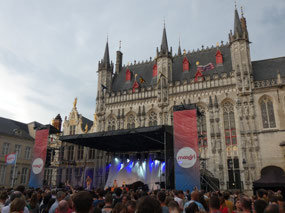
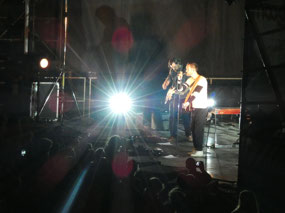
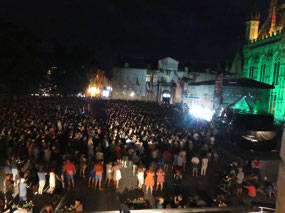
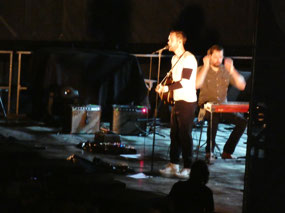
2025-05-22